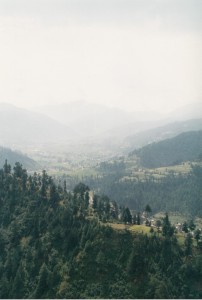
AG:“To come to Kashmir, how do you think this issue could be settled between India and Pakistan?”
Asma Jahangir:“Frankly, I don’t think the two governments are sincere about settling the issue. On the one hand, it’s a complicated issue whether Pakistan should be interfering or not. Pakistan gives the example of Bangladesh where people were really being oppressed and were going to lose many lives. If the government of Pakistan were to intervene I would be happier; I am not happy at the idea of vigilantes intervening.
It’s like me putting up an army and saying I want to fight a war in Bosnia. The answer I get to that is, no, Bosnia is not a disputed territory and Kashmir is. But let the government of Pakistan be in charge of what they are doing there. At the same time I have read, particularly in the past two, three years a number of reports, even by the Indian NGOs about the kind of intervention the [Indian] army has had in the Valley, and you cannot expect people not to be antagonistic – the number of people that have been killed, the number of women that have been raped. These are not exaggerated figures, because they have come from Indian NGOs themselves. Unless those people themselves are in the process of dialogue you will not be able to have a long-lasting solution there. Because let us even presume tomorrow that India and Pakistan for whatever reason, decide the issue – it will not be closed. The issue will come up time and again unless there is an interaction with the leaders of the Kashmiri movement themselves. And perhaps the question then is who are the genuine leaders? A mechanism ought to be put in place – certainly not without India and Pakistan – to ascertain who are the genuine leaders there. [In the process] even their (the Kashmiris’ ] own perceptions of where they want to go may change. When people are confronted with [such a situation] then the rhetoric finishes. Then it is reality [that they are dealing with] and in a situation of [confronting] reality they may take a very, very different stance.
AG:“You just said that the leaders in the two countries are not interested in solving the situation. What exactly do you mean by that?”

Asma Jahangir:“In our country we feel that if we solve the situation with anything short of having Kashmir with us it will be very unpopular with the people of Pakistan because of the high profile that we have given this issue and because of the rhetoric that we have had.
But Frankly it is not within Pakistan’s power to have both sides of Kashmir [with it] – even the Kashmiris may not agree with that. So who wants to take that risk? [Especially] after the expectations of people have been raised that Kashmir will be a part of Pakistan? Similarly on the part of the Indians. The Indian government will not wish to see any part of Kashmir [leave] India’s hands [or even] go into neutral hands. And that is a risk they will have to take if they want to come to talks and say, okay, these talks are for a solution. It’s a messy situation where the governments don’t have the courage, the confidence, or the moral conviction to face the realities.”
